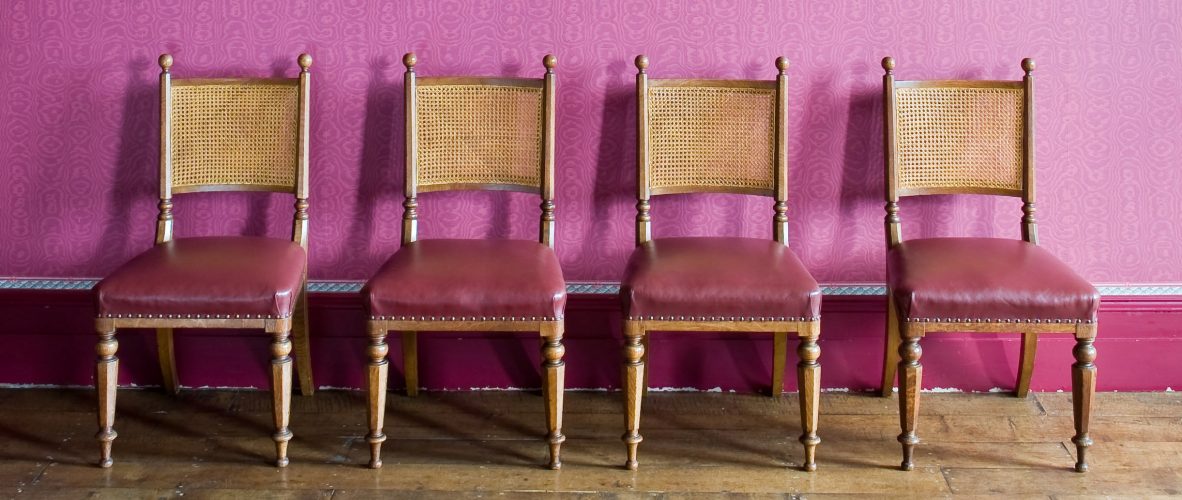The name given to the tight trousers worn by some Regency gentlemen, such as the notorious Beau Brummell and his ‘dandy’ followers, as they showed off their leg muscles.
Museum entrances & access to displays
The front of the building has two short sets of gently-rising stone steps – both have handrails.
Alternative entry is via Harper’s Lane, at the rear of the building where a lift in our garden will raise you to ground floor level. If you wish to use the lift for admission, please go just past out front door to Ave Maria Lane. At the end of this short alley, turn right and you will see our garden gate with a ‘Disabled Access’ sign – it’s not locked, so just come in and use our lift. Alternatively, you may be able to find a space to park in the Harper’s Lane itself.
If you would like any help from the staff, please just ask and if you are visiting alone, you are welcome to call us beforehand so we can make sure we are available show you the way.
The period rooms of the building are on three floors. For visitors with restricted mobility, access is regrettably to the ground floor only. Here you will be able to visit the displays on the local area, the police and court collection, the huge courtroom itself and the Judge’s dining and drawing rooms.
Disabled parking: There are several disabled parking places around the town. The closest is at the top of Broad Street, approximately 50 yards from the front entrance.
Admissions: There is no admission charge for any registered disabled visitor. There are concessionary rates for any visitors who are unemployed or in full-time study.
Guide and assistance dogs are most welcome on the site. We are sorry, but other dogs cannot enter the building, but we’re most happy for you to let them wait for you outside. A bowl of water will be provided for any dogs on site.
Seating: If you see a chair, you are welcome to sit in it. To us, that is what chairs are for! There are a few more delicate chairs, which we are trying to protect, and on those you will find items such as jackets placed.
Toilets: We have three toilets on site – two Victorian and one modern – all can be used. There are currently no accessible toilets on the site. The nearest is in the Hereford Street car park, approximately 200 yards away from the building, which operates a RADAR key schemed facility.
Discovering the collections
Hands on policy: The building has a ‘hands-on’ policy, allowing you to touch most of the items of display. All we ask is people remember things are very old.
Audio tour: The audio tour uses a very simple walkman system, with easy to identify buttons. It is currently available in English and Welsh.
Photo-pack: This can be used by anyone who is unable to visit all floors of the building. It has photos, wallpaper samples and more to give you a feel for all areas of the building.
Large print guidebooks are available.
Guidebooks are also available for adults in Welsh and for children in Welsh and Dutch.
Transcripts of the audio tour are available in English, Welsh, French, and German.
Magnifying glasses can be borrowed from the entrance.
Torches can also be borrowed from the entrance. This may sound strange, but please note that the period rooms are totally lit by Victorian means – gas and oil – and therefore some areas are darker than in a modern house. We offer small, wind-up torches to help you. If you want us to show you how to charge them, just ask.
Events: We try to make sure our events programme is varied and accessible to all. Whenever we can, we provide free events, such as family fun days. Most special events take place on the ground floor level.
For groups: Accompanied visits and tailored handling sessions are bookable – just get in touch and we will see what we can do to meet your needs.
